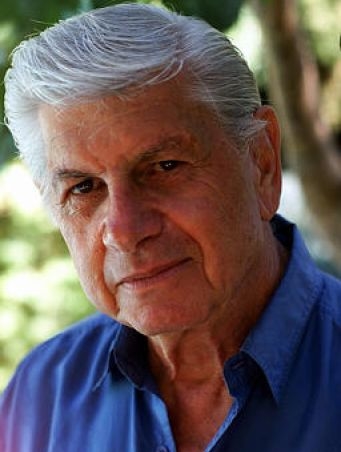
Behind The Glass Volume II - Page 6
Previous 1 - 2 - 3 - 4 - 5 - 6 - 7 - 8 Next
The echo chamber at Gold Star had a very distinctive sound, but wasn’t there also something unique about the way the console routed signal to it?
Actually, we had a series of echo chambers at Gold Star. Stan and I had tried building echo chambers of all kinds, and most of them sounded terrible when we were finished. For awhile, the best echo chamber we came up with was located in a bathroom, and we’d actually put the singer in there. One day we had a singer come in and do a demo of a song called “Well of Loneliness.” [laughs] After that, we didn’t use that particular echo chamber much any more.
But before we even had any echo chambers, the way we’d create that effect was to just open the door to the hallway at one end of the studio and have the vocalist—the only one who ever got echo, by the way—stand half in, half out, and then we’d put a microphone down at the end of the hallway to pick up the delay.
So, really, our concept of echo was distance—not an enhancement of a voice or an instrument, but just distance from that voice or instrument. To our way of thinking, when you put echo on something, you made it go farther away. Consequently, Dave Gold, the co-owner of the studio, designed our mixing console so that when you raised the echo on a channel, the level was also lowered automatically—it was all one integrated control, which no one else has ever done, to my knowledge. In other words, as you fed more signal to the echo send, you simultaneously sent less level to the output bus. That had a lot to do with why the Gold Star echo sounded as good as it did.
In a way, it’s similar to sending echo pre-fader.
No, it’s not the same, because in a pre-fade send there’s no direct relationship between the amount of signal being sent to the echo and the amount being sent to the output bus. The way we had things set up, it was as if every time you turned up the echo send, the fader was automatically being lowered correspondingly.
Again, it just came from our concept of echo being the opposite of presence, so that as you increased the echo, you decreased the presence, and vice versa. Somehow it worked very nicely for the kinds of records we were making at the time. In essence, we were just playing with depth of field. And I don’t know that we would have done the same thing if we had stopped and thought about it; we might have just thought, “Hey, let’s just come up with a way of sending signal to the damn echo chamber and not worry about reducing presence at the same time.” [laughs]
I remember going to another studio with Phil when we were making a record with Ronnie [Spector], and he kept asking the staff engineer there for more echo; every time the poor guy turned it up, Phil kept saying, “No, I want more!” He was getting quite exasperated, and the engineer couldn’t satisfy him. That was because he was used to hearing it the way we had things set up at Gold Star—he wanted to not only hear more echo, he wanted to hear less direct signal. In the end, the engineer just turned the echo send all the way up and Phil turned to me and he said, “What the hell is this guy on?” [laughs] That’s one of the reasons why Phil would have difficulty with certain engineers.
I guess he just had a certain way of working, and very few engineers except you understood what he wanted.
I guess so. I was his sounding board; he’d say, “What do you think?” and I’d usually say, “I love it.” And if I didn’t say “I love it,” that was usually the end of it, because he generally wasn’t willing to take a chance on a sound if I didn’t give it that seal of approval.
Other engineers who’ve worked with Phil Spector have said that he was actually very insecure.
Absolutely. Sometimes, though, he’d go the other way where he’d just display more and more bravado, which would turn everybody off. I never had that problem with him, though. I did send him away once, after we did A Christmas Gift For You, because it was just too tiring working with him; I didn’t want to work that hard any more. Of course, once I got some rest, I missed making hits with him and we started working together again.
You were present at the birth of stereo. How did you feel about things opening up from a single speaker to having a left-right soundstage to work in?
Well, it was a natural transition, though at first what we were doing was not true stereo—instruments were either on one side or the other, with no panning control. But once we got panning controls, it felt very natural. I didn’t mix very differently, though, because for a long time after stereo came in there was still no FM radio, so all the radio broadcasts were in mono. So I can’t honestly say that stereo opened up a whole new world for me, or anything like that; it was just another advance. The only advance I hated was when we went to quad.
Previous 1 - 2 - 3 - 4 - 5 - 6 - 7 - 8 Next
Webmaster: Jos Megroedt | Website: http://www.josmegroedt.com/ |
This site is hosted by: http://www.hostingphotography.com/

